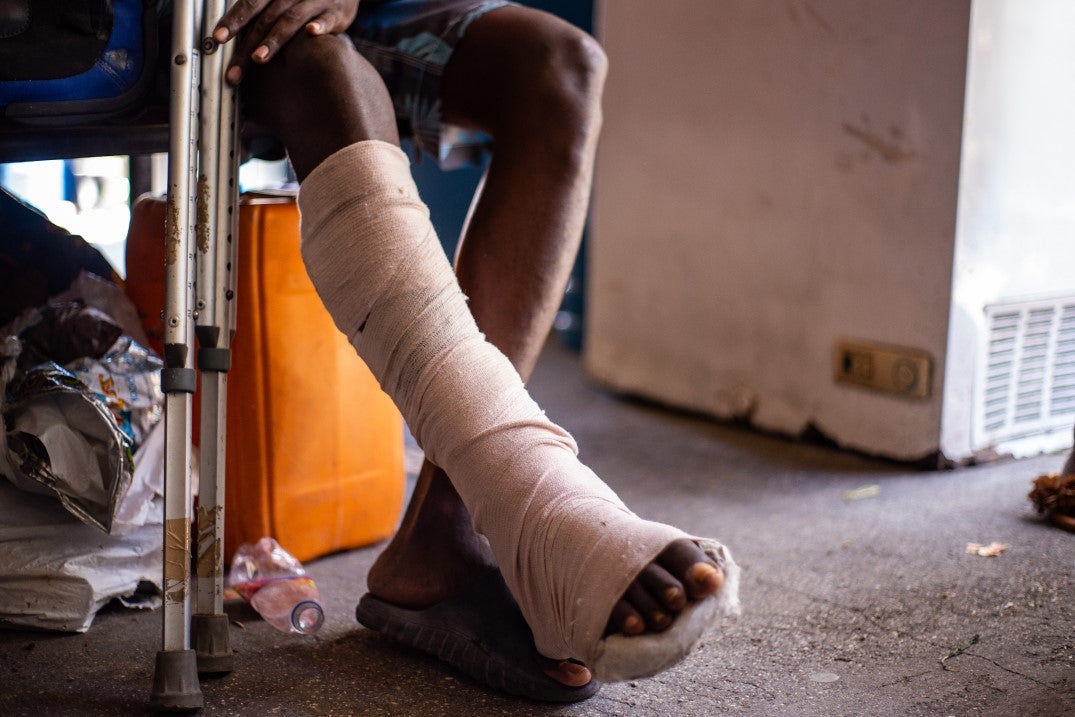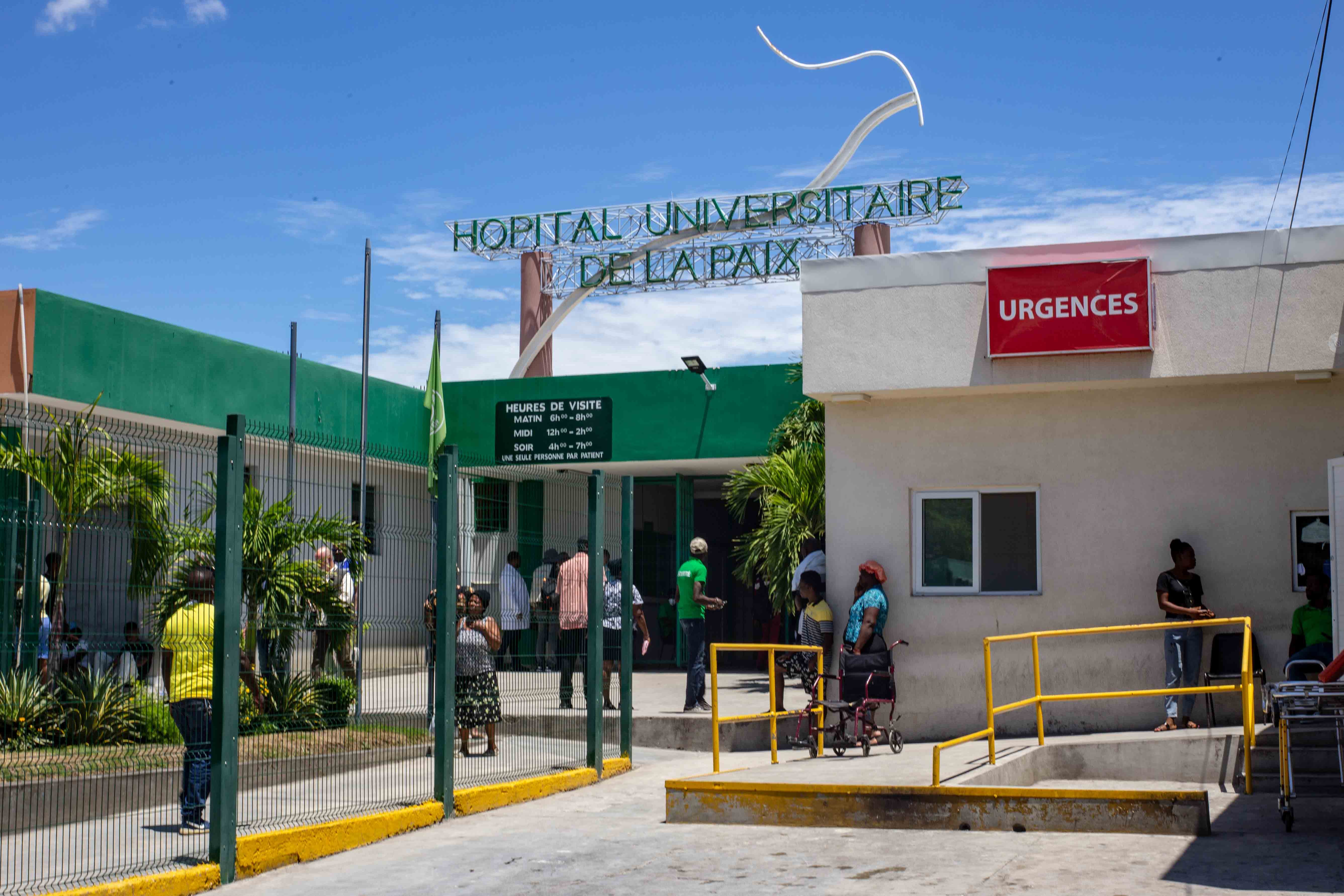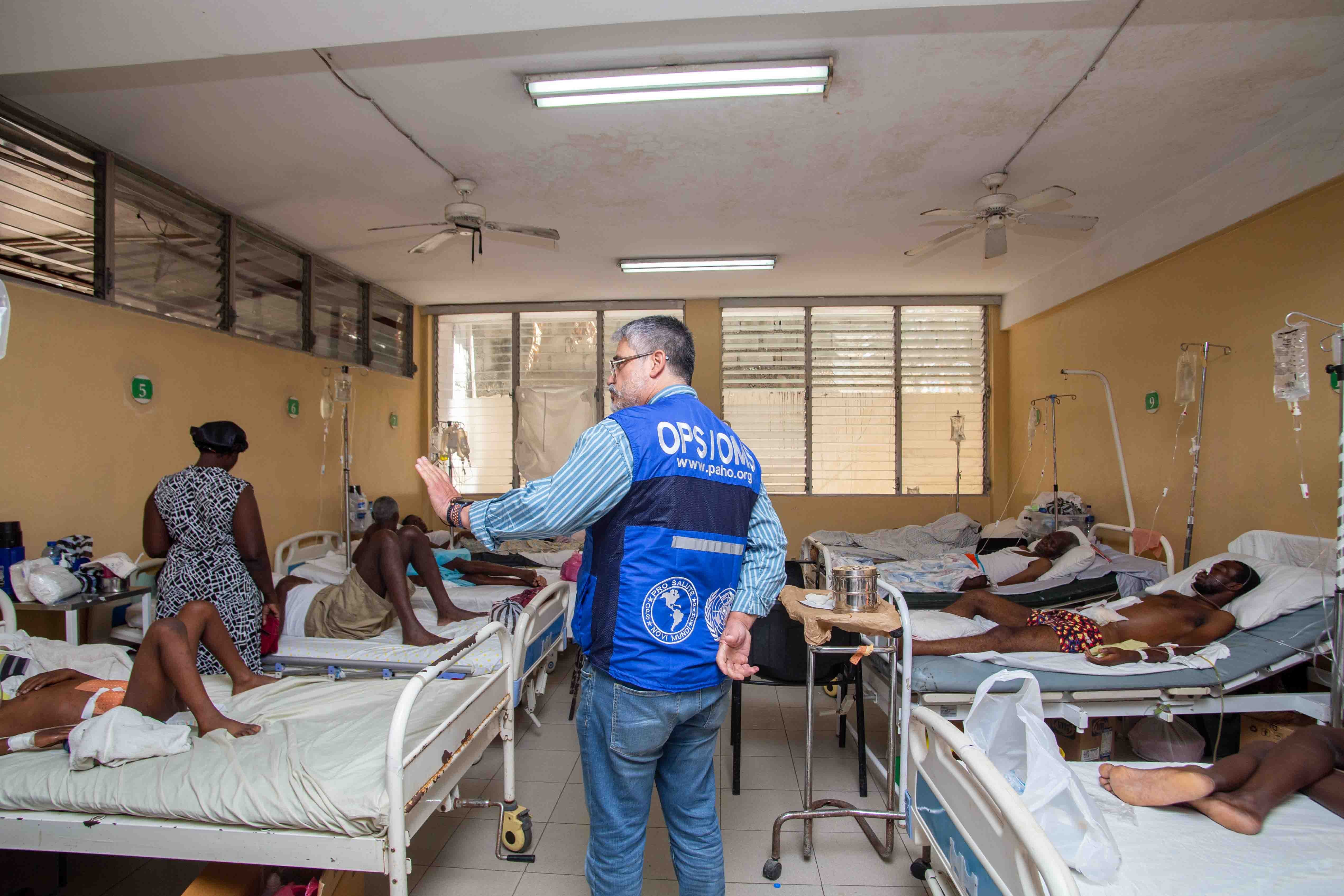
Port-au-Prince, 14 May 2024 (PAHO/WHO) - “Bandits invaded my neighborhood. I was shot in the foot as I tried to escape” explains John, 34, who is among the many collateral victims of the security crisis plaguing the the Metropolitan Area on of Port-au-Prince and which has worsened since February 29, 2024. The crisis in impacting an already fragile health system, impeding access to healthcare for millions of Haitians and affecting their livelihood. “I had a store and a motorcycle before the crisis. I lost everything when I was wounded by a stray bullet,” he explains.
At the forefront of the health authorities’ response to the current emergency, and only public hospital able to manage a large number of gravely wounded patients like John, the Hopital Universitaire de La Paix (HUP) receives the support of PAHO/WHO.
A health system under enormous strain
The Ministry of Public Health and Population (MSPP) estimates that 39 % of in-patient health facilities have closed in the past month due to insecurity or looting in the Port-au-Prince Metropolitan Area. Among them, the Hôpital Universitaire d'Etat d'Haiti (HUEH), the country's main public hospital, has been unable to reopen its doors due to frequent clashes in its vicinity.
This left HUP as the only public hospital with the capacity to manage mass, a mass casualty event. On the front line of emergency response, Dr Paul Junior Fontilus, its director, had to swiftly activate the Hospital’s contingency plan to cope with the influx of wounded patients.
“We have activated our contingency plan to better manage the influx of seriously injured individuals. Our priority is to ensure that all victims receive the immediate care they need. This plan mobilizes all available resources and calls upon our trained staff to respond with the urgency and professionalism that the situation demands" explains Dr Paul Junior Fontilus, director of HUP.
To support its operation, PAHO/WHO supplied the health structure with several tons of medicines and medical supplies, enough to ensure the provision of emergency medical care and the operation of other departments for the upcoming months. PAHO/WHO also provided fuel to power the hospital. These activities were made possible with the financial support of the European Commission Humanitarian Aid (ECHO) and the Contingency Fund for Emergencies (CFE) WHO's.
Key to the response: a newly built ambulatory emergency room
Inaugurated in December 2022, the building, part of PAHO/WHO's SMART Hospital initiative was designed to address the health authorities’ need for a more resilient and sustainable health infrastructure to provide timely post-disaster care.
“Since its inauguration and even more so during the current crisis, this new wing of the hospital has been instrumental in improving our capacity for patient management. The ambulatory emergency room allows us to efficiently triage and stabilize patients, provide cast and wound care and monitor the condition those who need it in our observation room” added Dr Fontilus
Challenges ahead
While its team has been reinforced with medical staff from the now closed HUEH hospital, HUP is still facing a human resource challenge, as many of its staff find it often impossible to report to work amid a tense security situation in several areas of the ZMPAP.
"We face many challenges, not least ensuring the continuity and accessibility of our services. HUP must continue to be able to serve the pregnant women who come here to give birth or the malnourished children who are brought to us. Our ability to provide health for all is put to the test every day," concludes Dr. Fontilus.
The continued closure of the international airport and the port of Port-au-Prince could in the near future threaten the supply medical products. Also looming, a potential shortage of fuel which powers the generator, providing electricity to the entire structure.






